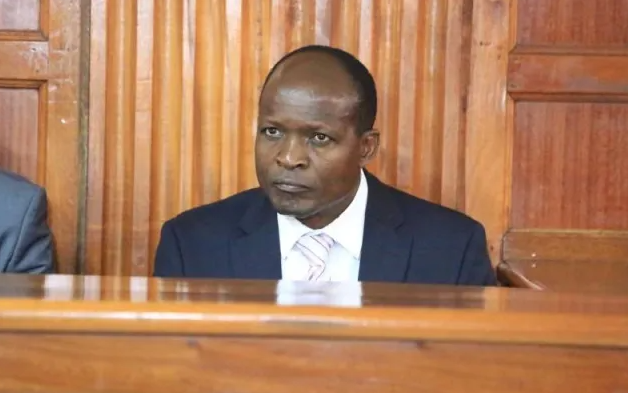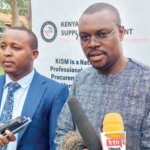The Ethics and Anti-Corruption Commission (EACC) is expected to testify in the case against former Migori Governor Zachary Okoth Obado, his four children – Dan Achola Okoth, Scarlet Susan Okoth, Everlyn Zachary Okoth, and Jerry Zachary Okoth – along with 11 other accused persons.
The hearing, scheduled for Monday at Milimani Anti-Corruption Courts before Chief Magistrate Victor Wakumile, will see the first Prosecution Witness (PW1), an EACC Investigating Officer, detailing how an alleged illegal scheme involving the former Governor and his co-accused was planned and carried out.
The accused individuals face criminal charges related to the alleged theft of public funds and conflict of interest within the Migori County Government. A total of 59 witnesses have been lined up to provide testimony to substantiate the case against them.
EACC initiated investigations after receiving allegations that Migori County Government had made suspicious payments totaling Sh1.98 billion to multiple companies. Subsequent investigations revealed that most payments were lawful, relating to executed contracts verified through a verification exercise. However, payments amounting to Sh235 million remained unexplained and were suspected to have been acquired improperly from the County Government.
The Commission identified the unexplained amount as proceeds of corruption, including alleged kickbacks directly sent by some companies as school fees for Obado’s children to foreign universities. High-end properties purchased for the family by these contractors have been recovered through Alternative Dispute Resolution (ADR) following a civil recovery suit filed at the High Court.
The seized properties will be disposed of by public auction as per court orders issued by Justice Esther Maina. If found guilty in the ongoing criminal case, the accused persons could face conviction and sentencing under Section 48 of the Anti-Corruption and Economic Crimes Act, 2003, which allows for a maximum jail term of 10 years per offence and mandatory fines up to twice the amount of public funds lost or benefits acquired.
Additionally, Section 64 of the Act bans convicted persons from appointment or election to any public office for a period of period 10 years.



